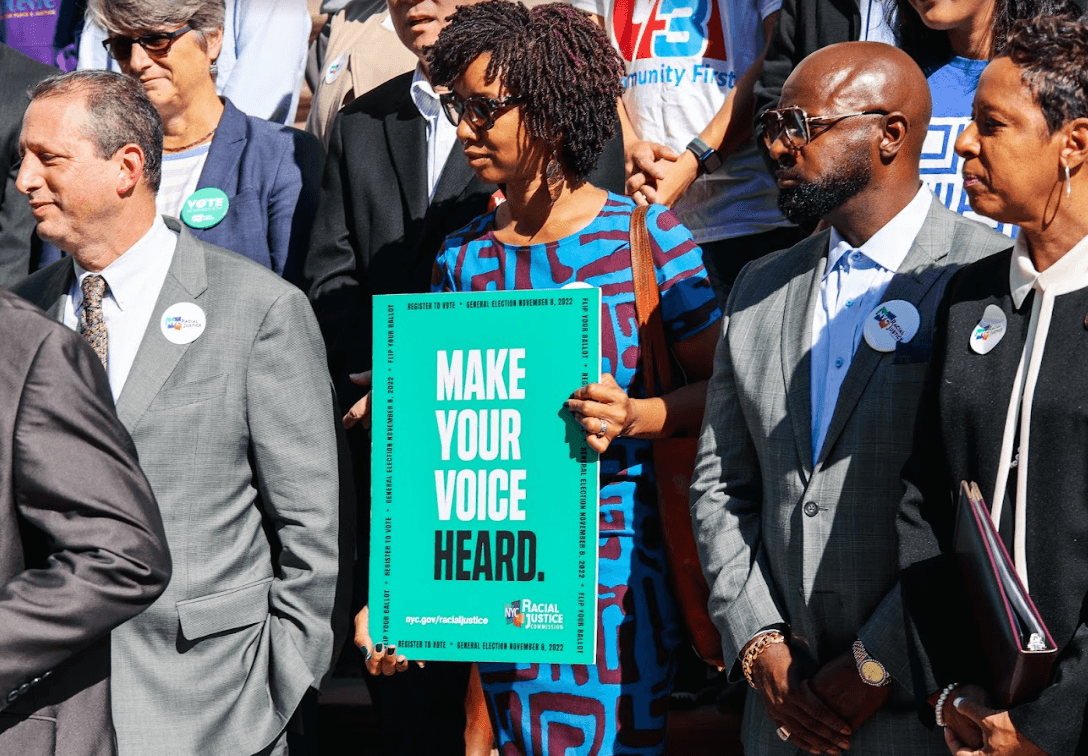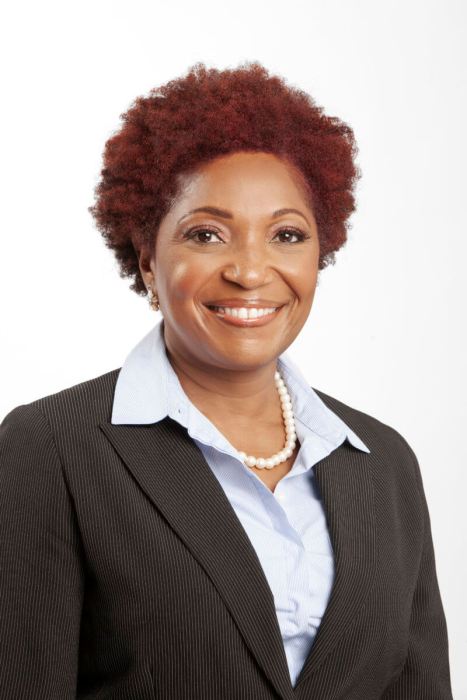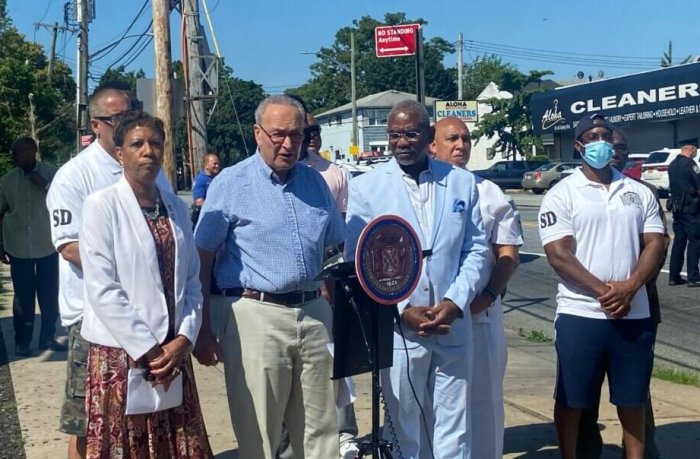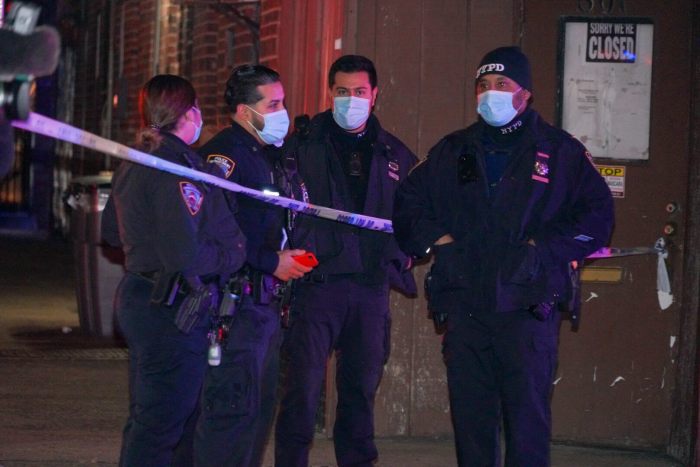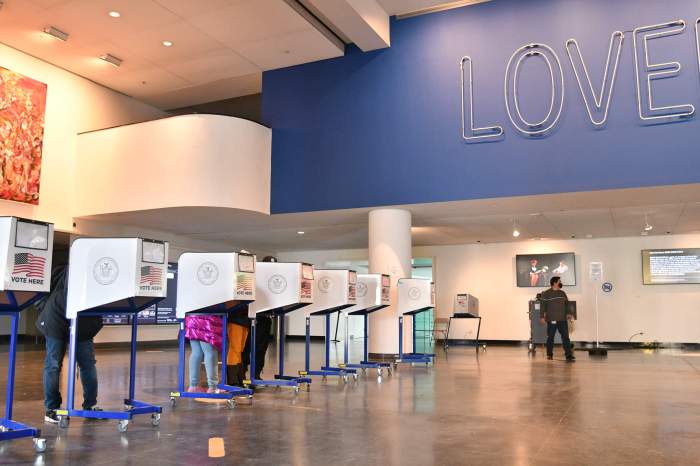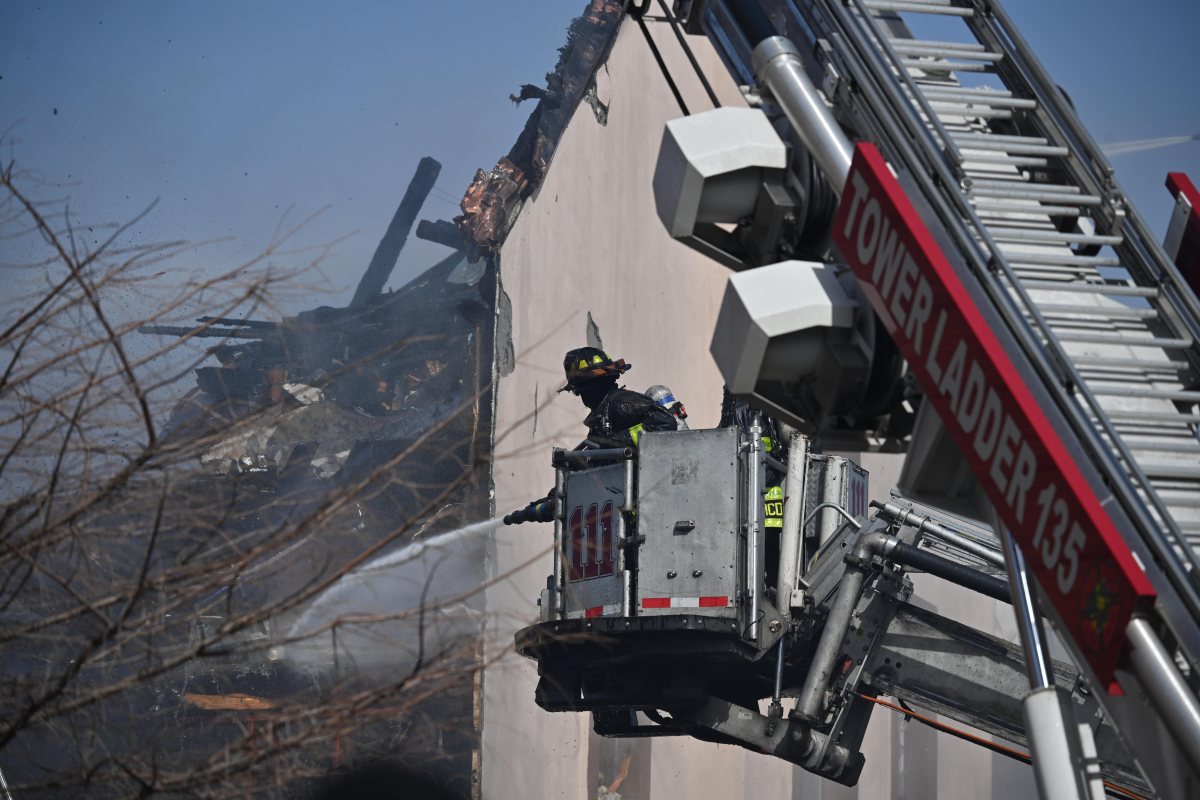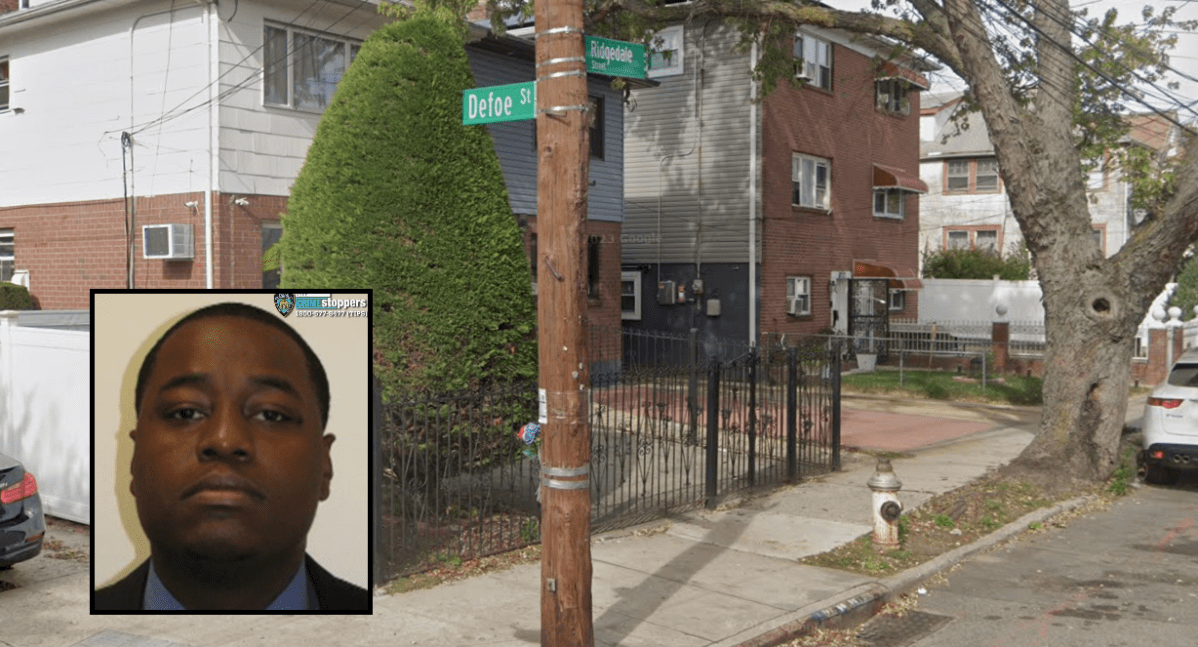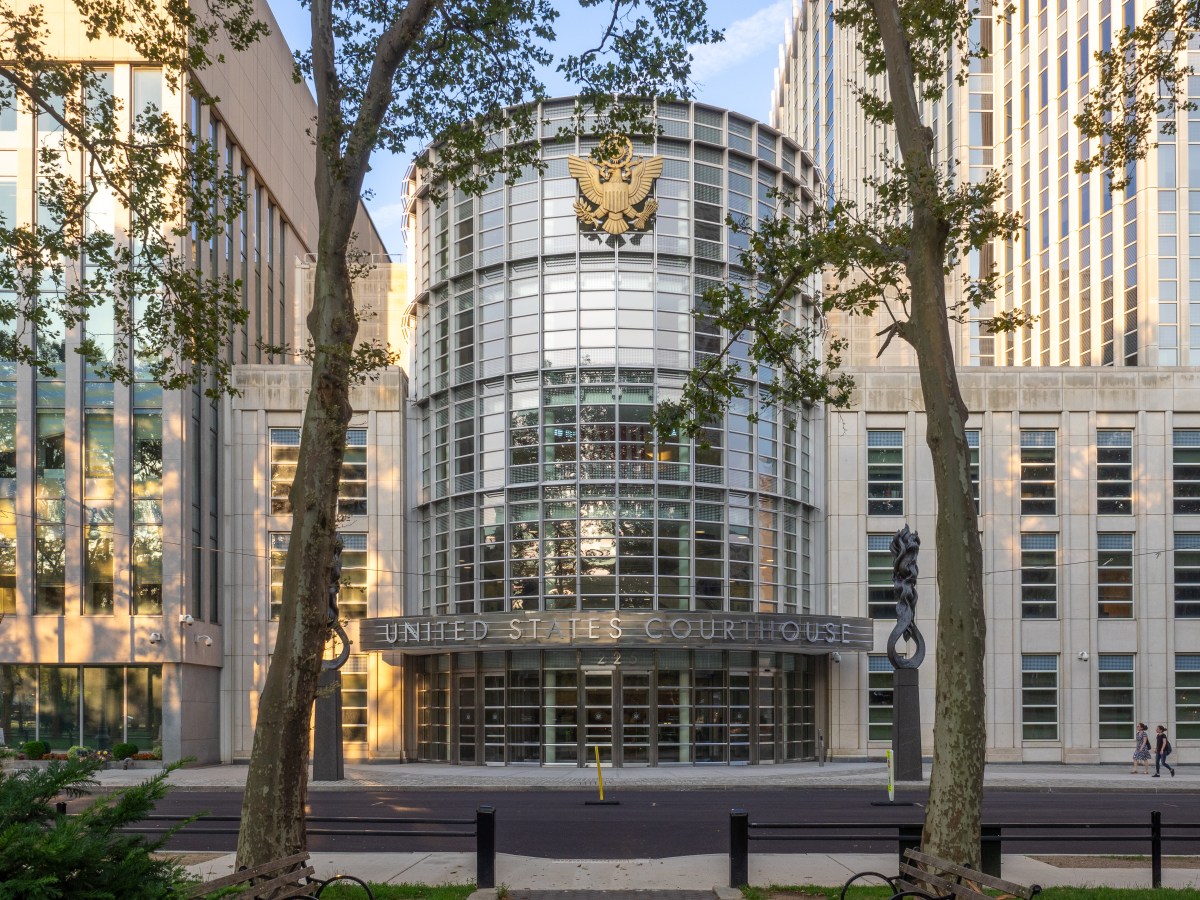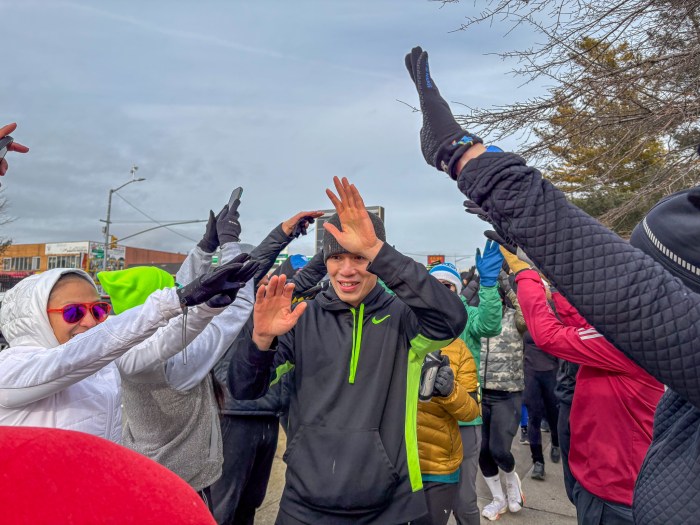Civic leaders are encouraging New Yorkers casting their vote in the November election to flip their ballot and decide on three proposals intended to advance racial justice and equity in the Big Apple.
The three broad, overarching questions on the back of the ballot ask voters to decide what kinds of values the city should embrace, in particular whether the precepts of racial justice should be central to the work of government in New York City.
New Yorkers can give a thumbs up or down to questions asking whether to add a preamble to the city charter solidifying equity as a goal of city governance, establish a commission and city agency that would devise biennial racial equity plans, and develop a “true cost-of-living” calculation to more holistically inform policymaking.
“After selecting your preferred candidate in this coming election, however, it is critical that all voters flip the ballot and also cast their vote on three ballot proposals,” said Council Speaker Adrienne Adams during a get-out-the-vote rally at City Hall on Tuesday.
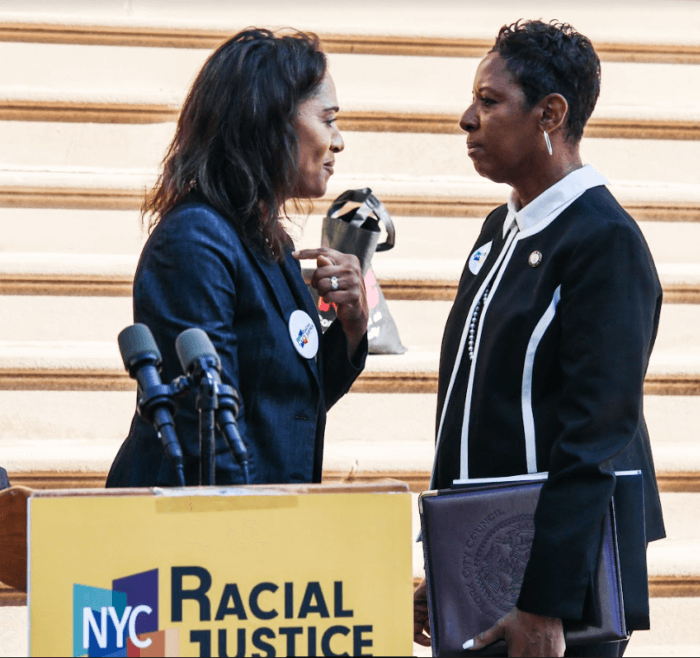
The three ballot questions derive from the work of the Racial Justice Commission, empaneled in 2021 by former Mayor Bill de Blasio after the 2020 George Floyd protests, whose mission was to identify ways that racism is baked into city law and recommend charter revision proposals to correct them going forward.
The commission held numerous in-person and virtual hearings across the city where New Yorkers expressed how they believe the city was failing to ensure equitable governance, from overarching themes like racial disparities in mental healthcare, to hyperspecific policies like the controversial tax lien sale.
In the end, commission members opted to craft their proposals as broadly as possible, aiming to create mechanisms to solve problems rather than attempt to solve each individual issue on its own. The commission’s chair, Jennifer Jones Austin, said at the rally that by proposing charter revisions, equity would be baked into the city’s mission going forward instead of being at the whim of a given mayoral administration.
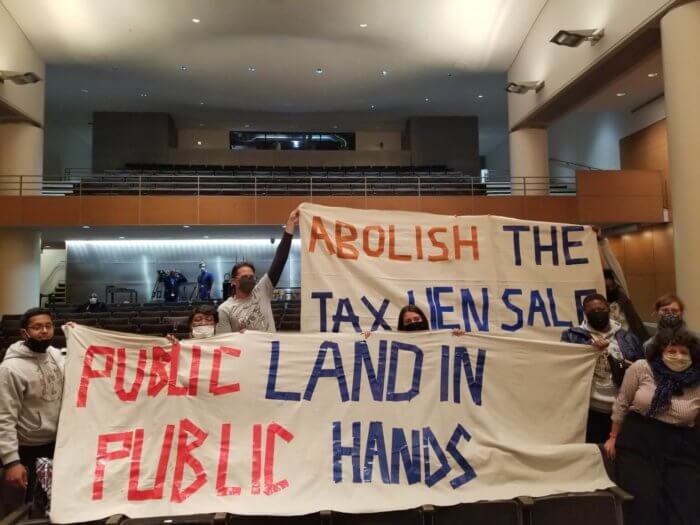
“By working with the charter, what the commission has done is put forth proposals that actually survive any administration,” said Jones Austin, also the CEO of the Federation of Protestant Welfare Agencies. “So equity and justice is not in the hands of one particular administration or another. It becomes embedded in city government functions.”
Embedding values in the city’s foundational document also makes the city more accountable to those values, said City Comptroller Brad Lander.
“A city that leans in on racial justice and equity is a city that will be more vibrant, that will have more economic value being created, that people will want to be coming to for decades and decades to come,” Lander said. “And a city that puts in its charter that these are our values is then a city that you can hold accountable to those values.”
The voting registration deadline for the general election is this Friday, Oct. 14. Early voting begins on Saturday, Oct. 29, and election day is Tuesday, Nov. 8.



